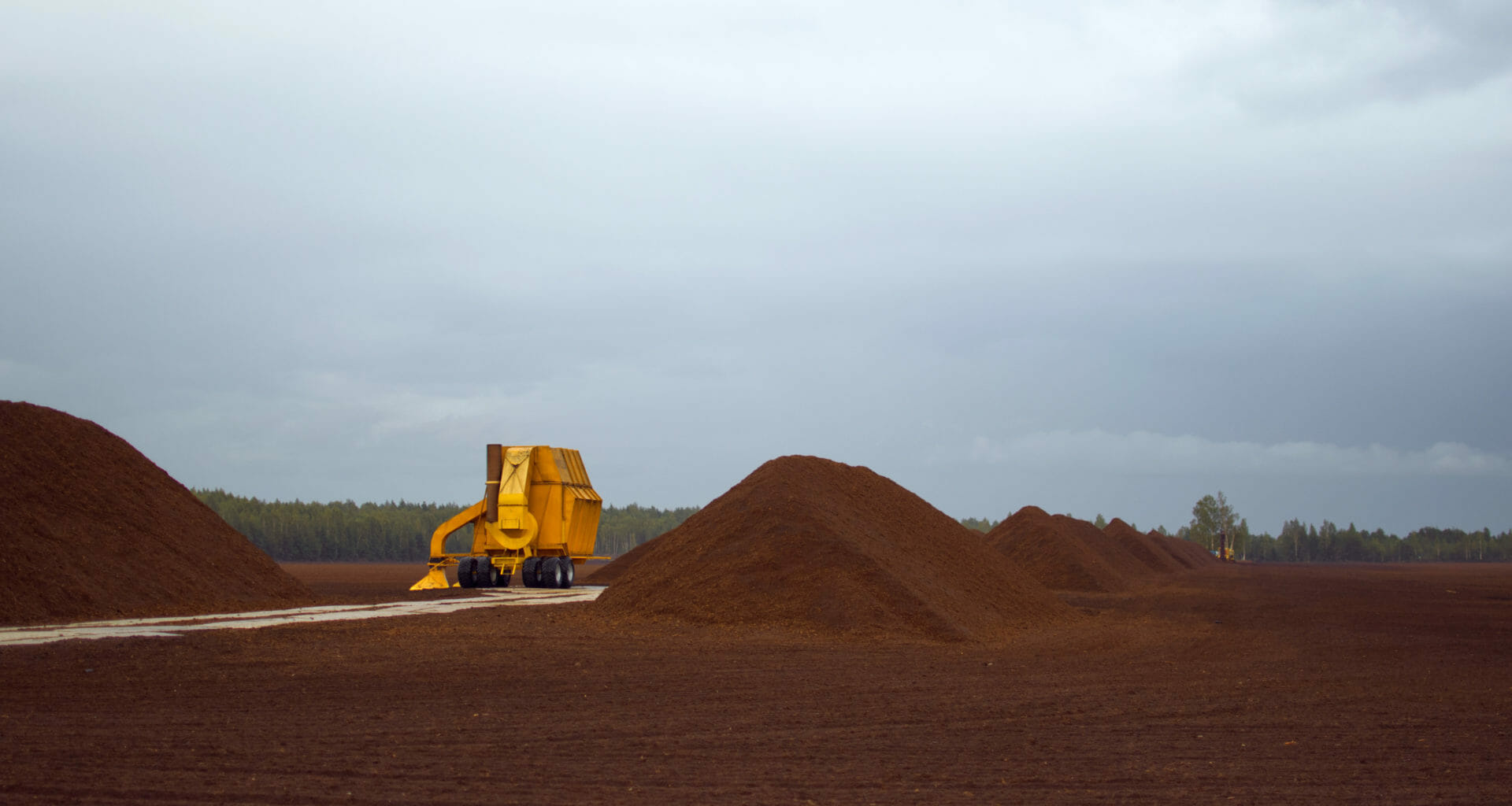An attempt by a fertiliser multinational to extend peat extraction in south-west Scotland has been unanimously rejected by a council on grounds it would contribute to climate change.
Chemicals company ICL had applied to continue extracting peat, which it uses in the production of compost, from a site called Nutberry Moss, near Annan, until 2029.
The proposal had been opposed by local residents, green groups and the Scottish Environment Protection Agency (SEPA) because peat plays an important role in combating climate change.
Scotland’s peatlands store 1.7 billion tonnes of carbon, equivalent to 140 years’ worth of Scotland’s total annual greenhouse gas emissions. But when they are mined carbon is released into the atmosphere, contributing to global warming.
A report by Dumfries and Galloway Council recommended that the application to extend peat extraction at Nutberry Moss be refused because it “would result in the release of further carbon emissions into the atmosphere and fail to limit the impacts of climate change”.
In a vote on 24 February, councillors on the planning committee unanimously agreed with the conclusions of the report and voted to reject the application.
The Ferret first reported on ICL’s plans to extend peat extraction at Nutberry Moss and at Lochwood Moss, another site in Dumfries and Galloway, in May 2020. Following the report, SEPA, which had previously not opposed the proposal, changed position and objected to both developments. Numerous local objections were also received by the council.
Environmental groups welcomed Dumfries and Galloway Council’s decision to reject further peat extraction at Nutberry Moss. They also argued that a strong position on the protection of peatlands is particularly important given that Glasgow will host a major United Nations summit on climate change – known as COP-26 – later this year.
They claim the Scottish Government needs to go further by banning all commercial peat extraction for the production of compost, and repealing existing permissions for this to take place.
Dougie Peedle, head of policy at the Scottish Wildlife Trust said: “Strong interest in Lochwood Moss from Scottish Ministers is a positive sign. We hope that following a full public inquiry they will reinforce the council’s decision to protect this site from further damage.
“Peatlands have infinitely greater value as wildlife habitats and carbon stores than as material for cheap compost.
“The Scottish Government has made ending the use of peat in horticulture a priority alongside funding the restoration of degraded peatlands. These are welcome and important steps forward in addressing the biodiversity and climate crises.
“However, we would like to see the government go further by committing to a repeal of existing licences for peat extraction by 2023.
“As Scotland prepares to host COP26 later this year it is more important than ever to set a strong example and show that we are prepared to take the bold actions needed to halt climate change and reverse biodiversity loss.”
Alistair Whyte, head of Plantlife Scotland, also welcomed the decision, and called for “a ban on all commercial peat extraction for horticulture to protect and restore Scotland’s wild plants and their peatland habitat.”
He added: “Clear direction from Scottish Government, via an outright ban, will avoid the need for repeated applications, refusals and appeals.
“Healthy peatlands have a vitally important role as we tackle the climate and nature emergencies: commercial extraction can remove over 500 years’ worth of peat growth in a single year.
“At a time when the Scottish Government is investing £250 million over ten years in peatland restoration on the one hand, it makes no sense to allow continued destruction of peat bogs on the other hand.”
We welcome Dumfries & Galloway Council’s decision to refuse permission for these developments, due to the damage they would do to important habitat and the increased carbon emissions caused by peat extraction.
Dougie Peedle, head of policy at the Scottish Wildlife Trust
Dr Janet Moxley, a soil scientist, said the council’s decision showed they “clearly understood that arguments for the need for more extraction did not stand up to scrutiny.”
However, she also noted that “extraction will continue at this site until 2024 under the existing consent Councils cannot suspend existing planning consents, but Scottish Government can revoke them. I hope that in the year that the COP climate talks are held in Glasgow they decide to do this.”
Scottish Government ministers have recently taken a closer interest in attempts to extend peat extraction, in what has been described by environmental groups as “a positive sign.”
On 12 February, they issued a “direction” to Dumfries and Galloway council that “reserve their right to intervene” in the Nutberry Moss case, due to “the national importance of peatlands.”
On the same date, ministers announced that they would decide the outcome of ICL’s ongoing attempt to extend peat extraction at Lochwood Moss.
This was rejected by Dumfries and Galloway Council in August last year, but ICL has since appealed against the decision. Ministers again highlighted “the national importance of peatlands” and their role in “addressing climate change” in their announcement.
ICL has been asked to comment.
Photo thanks to iStock and Julija Kumpinovica















My friends and I run a charity called the Scottish Tree Trust and we bought a peat bog in North Lanarkshire 30 years ago, called Cathburn Moss, to protect it for wildlife and help climate change cause. We are shocked at the duplicity of all forms of Government in the UK in not being more decisive in the conservation of such areas.